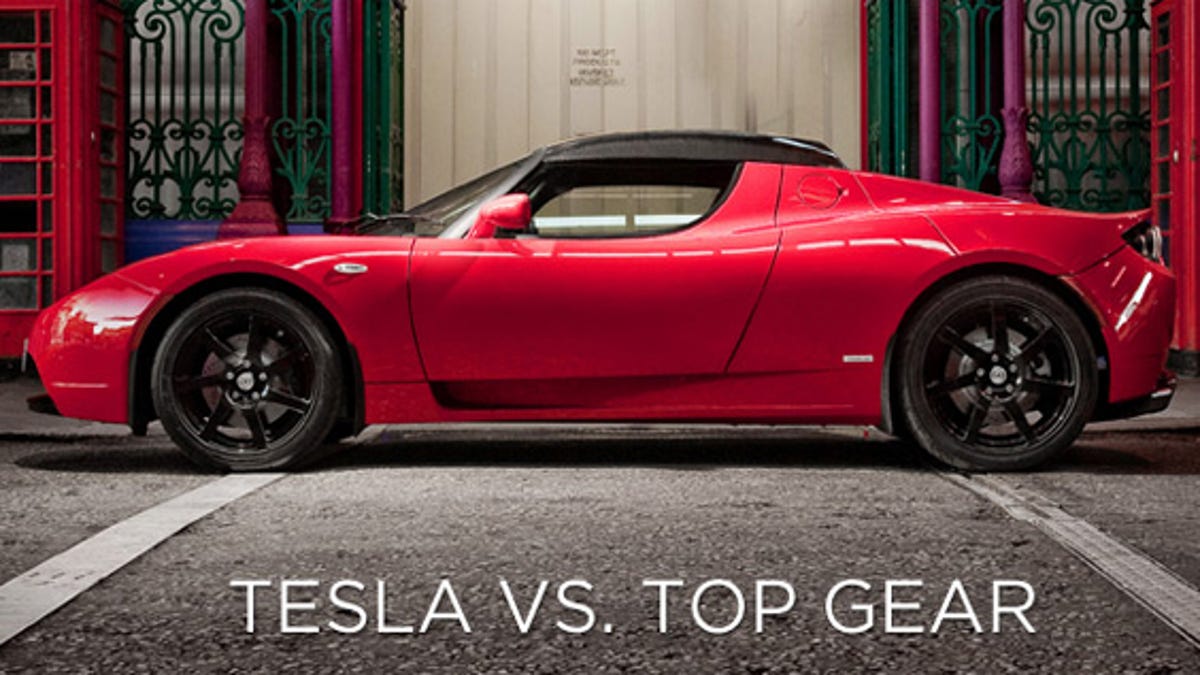Tesla calls Top Gear exec 'disingenuous' in latest round of conkoutgate
Tesla has attacked Top Gear executive producer Andy Wilman's defence of the show's review of the Roadster electric sports car. Is it really disingenuous or just some TV flummery?

Tesla Motors has attacked Top Gear executive producer Andy Wilman's defence of the show's review of the Roadster electric sports car. That review is now the subject of a lawsuit -- and a scandal we're calling conkoutgate. Tesla wants to stop the "continued rebroadcasts" of the episode (Tesla's looking at you, Dave), and called Wilman's recent blog post on the matter "disingenuous".
We're rather of the opinion that both sides should keep their mouths shut and let the facts be disputed in court. We imagine the two legal teams are tearing their hair out (hence the funny wigs) at this public spat, which is introducing inconsistencies at every hairpin bend.
For instance, in the piece, Jeremy Clarkson concludes, "It's just a shame that in the real world, it doesn't seem to work." In its latest blog post, Tesla quotes this as "in the real world, it absolutely doesn't work," which is a very different claim.
"Now Mr Wilman wants us to believe," splutters the company, "that when Top Gear concluded that the Roadster 'doesn't work', it 'had nothing to do with how the Tesla performed'. Are we to take this seriously?" Well, yes. Because a car can go fast, but not work "in the real world". You need to show more than its top speed, as any fule kno, especially when you're trying to explain an entirely new concept of motoring.
As we've discussed before, the noise when the car runs out of battery is indisputably inaccurate, and it isn't entirely accurate to show people pushing the car either. But is this genuinely misleading or merely TV shorthand? Is it a couple of seconds of flummery to illustrate Wilman's broadly accurate point that the range is far less than the petrol cars it's competing with, or would it lead someone to believe Tesla is making false claims?
That's for our friends in powdered headgear to decide. Tesla has some strong arguments, and, on the face of it, Top Gear has some difficult questions to answer. 'Merely TV shorthand' may well not wash in a court of law. But, if a court finds that not every claim made in a review has to be literally true, but rather the article as a whole must accurately represent the product (to not be considered libellous), then it could set an interesting precedent.
A comment on the company's blog post from user 'NC' makes a wider point: "The straightforward answer is that Top Gear loved the car. They represented its (tiny) shortcomings in the framework of an entertainment show and in the style that they represent every car's shortcomings.
"Top Gear's Tesla feature was the reason I discovered Tesla, the reason I fell in love with the brand, and the reason I still hope to buy a Roadster in Britain," says NC.
Is Tesla doing itself a disservice by very publicly picking a fight with a TV show that many of its potential customers know and love? Is the repeated showing of a segment with quotes such as, "That's biblically quick! This car is electric -- literally!" and "The volthead has just overtaken the petrolhead and yes, I've just heard, it is snowing in hell!" really lowering the company in the minds of right-minded people? Let us know your thoughts, legally qualified or otherwise.

